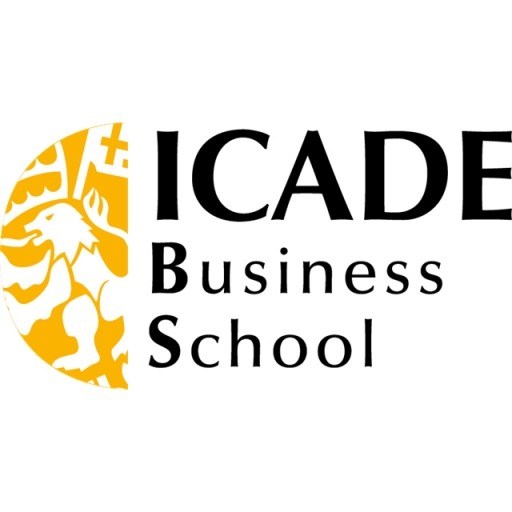Photos of university / #bruneluni
Description
The distinctive feature of this programme is that it allows students to develop the fundamental analytical techniques of micro- and macroeconomics, while also developing knowledge and understanding of the core concepts and issues in financial and management accounting.
Economics plays a crucial role in the operation, management and regulation of financial institutions, industry and government agencies. As a senior manager in public and private enterprise, a knowledge of economics significantly enhances strategic decision making. Further, such knowledge is crucial in a world of integrating global markets and the information superhighway.
The courses at Brunel combine an understanding of theory with the practical skills necessary to apply your knowledge to a business, industrial, financial or government environment. It is this combination together with a strong background in finance that distinguishes the Brunel courses from other degrees in economics.
The use of computers is an integral part of all our courses. You will make extensive use of computers attached to a powerful network. You will then be linked to other UK and international information sources. You will also become familiar with the analytical packages widely used by business and financial institutions.
In your final year you will undertake a dissertation which is linked to your degree. This is a piece of personal research which is often seen by prospective employers and which may stem directly from a work placement. Otherwise the subject will be stimulated by topical issues such as directors' pay, regulation of utilities or European monetary union. Our staff have extensive research expertise in these and other areas, leading to a Research Assessment of 4 in the last Government exercise.
Our degrees are available in either the traditional three-year format or as a four-year degree with integrated professional placements.
Aims
The purpose of this course is to provide students with a strong intellectual and practical grounding in both economics and accounting. The course aims to produce high quality graduates with the core skills and attributes that will enable them to understand and analyse economic and accounting issues in a variety of contexts.
The use of computers is an integral part of all our courses. You will make extensive use of computers attached to a powerful network. You will then be linked to other UK and international information sources. You will also become familiar with the analytical packages widely used by business and financial institutions.
In your final year you will undertake a dissertation which is linked to your degree. This is a piece of personal research which is often seen by prospective employers and which may stem directly from a work placement. Otherwise the subject will be stimulated by topical issues such as directors' pay, regulation of utilities or European monetary union. Our staff have extensive research expertise in these and other areas, leading to a Research Assessment of 4 in the last Government exercise.
Detailed Course Facts
Application deadline January 15 Tuition fee- GBP 9000 Year (EEA)
- GBP 13000 Year (Non-EEA)
Duration full-time 36 months Languages Take an IELTS test
- English
Course Content
Emphasis is on both theory and practical applications. At Levels 1 and 2, you will take modules in economics, financial accounting, management accounting, company law and regulation, and financial markets. At Level 3, you will take additional modules in economics and accounting, while having a choice of optional modules in applied economics and accounting related topics. At Level 3 you will also complete a dissertation on an appropriate topic of interest.
Typical Modules
Please note that module availability is subject to change.
Level 1- Microeconomic Principles
- Macroeconomic Principles
- Financial Markets
- Mathematics for Economics and Finance
- Statistical Research Methods
- Introduction to Financial Accounting
- Introduction to Economic Modelling
- Microeconomic Principles II
- Macroeconomic Principles II
- Management Accounting and Decision-making
- Financial Accounting and Statement Analysis
- Company and Law Regulations
- Work Placement (four-year programme only)
- Project/Dissertation
- Financial Accounting
- Advanced Topics in Economic Theory
- Auditing
- Managerial and Industrial Economics
- International Money and Finance
- The Economics of the Labour Market
- Development Economics
- Behavioural Economics and Finance
- Econometric Methods and Applications
Hours
You will have about 12 to14 hours of directed study a week in Level 1. This number decreases in Levels 2 and 3. Students are also expected to undertake substantial independent study.
How will I be taught?
Lectures These provide a broad overview of key concepts and ideas relating to your course and provide you a framework from which to carry out more in depth study.
Workshops These are generally used for modules in finance or quantitative subjects. They often take the form of working through answers to a previously distributed assignment sheet of exercise questions.
Seminars These relatively small groups are used to examine the lecture material in more detail, and to analyse and apply theoretical concepts in specific contexts.
One-to-one You will have one-to-one supervision for your final year dissertation, and at all levels you will have a personal tutor who is available to discuss personal and academic problems. If you go on placement, you will also be allocated a work placement tutor who will monitor your progress and provide further support if you need it.
Other This may include guest speakers from prominent organisations, research seminars and external site visits.
English Language Requirements
IELTS band : 6.5 CAE score : 60(Grade C) TOEFL paper-based test score : 580 TOEFL iBT® test : 92
To study at this university, you have to speak English. We advice you to
take an IELTS test. More About IELTSRequirements
UCAS Tariff - 320 points, from:
- GCE A and AS-level Tariff points typically from 3 A-levels together with either 1 AS-level or Extended Project Qualification (typical offer BBC, plus a C in either an AS or EPQ, including Grade C in Maths/Statistics at at least AS-level). General Studies/Critical Thinking accepted as 4th AS-level only.
- Irish Tariff points from 5 subjects, including Grade C in Maths.
- Scottish Tariff points from 3 Advanced Highers, including Grade C in Maths, plus 1 Higher.
- Advanced Diploma Tariff points in Business, Administration and Finance or Public Services, including A-level Maths or Grade B at AS-level in both Maths and Economics for Additional and Specialist Learning
- BTEC ND DDM in a related subject, plus at least Grade C in AS-level Maths or Statistics.
- IB Diploma 32 points, including 6 in Standard Maths and 4 in Higher or 5 in Subsidiary English.
For all of the above, 5 GCSEs or equivalent at Grade C or above are also required, to include Grade B in English and Maths.
Access: Pass plus AS-level Maths.
Work Experience
No work experience is required.
Related Scholarships*
- Academic Excellence Scholarship
"The Academic Excellence Scholarship can provide up to a 50 % reduction in tuition per semester. These scholarships will be renewed if the student maintains superior academic performance during each semester of their 3-year Bachelor programme. The scholarship will be directly applied to the student’s tuition fees."
- Access Bursary
Bursary for UK students all subjects where the variable tuition fee rate is payable.
- Alumni Bursary
Alumni Bursary for UK Undergraduate students
* The scholarships shown on this page are suggestions first and foremost. They could be offered by other organisations than Brunel University.










